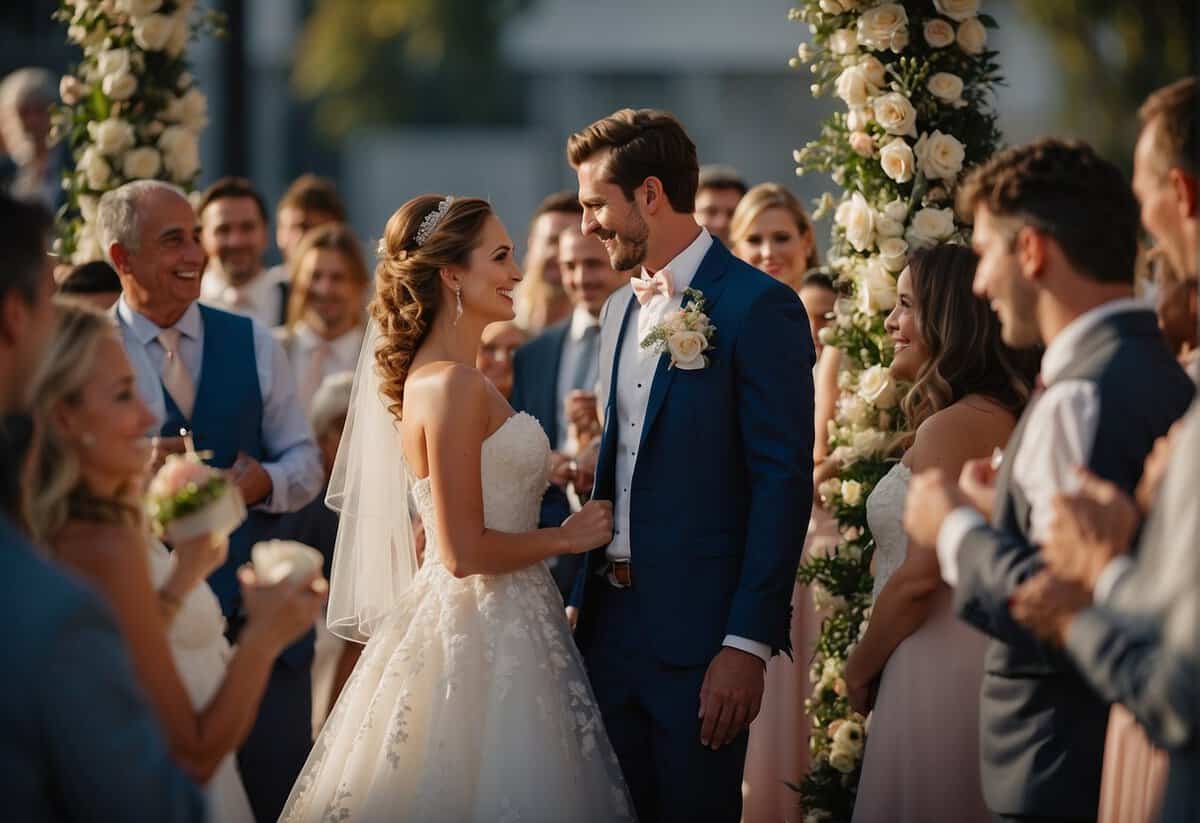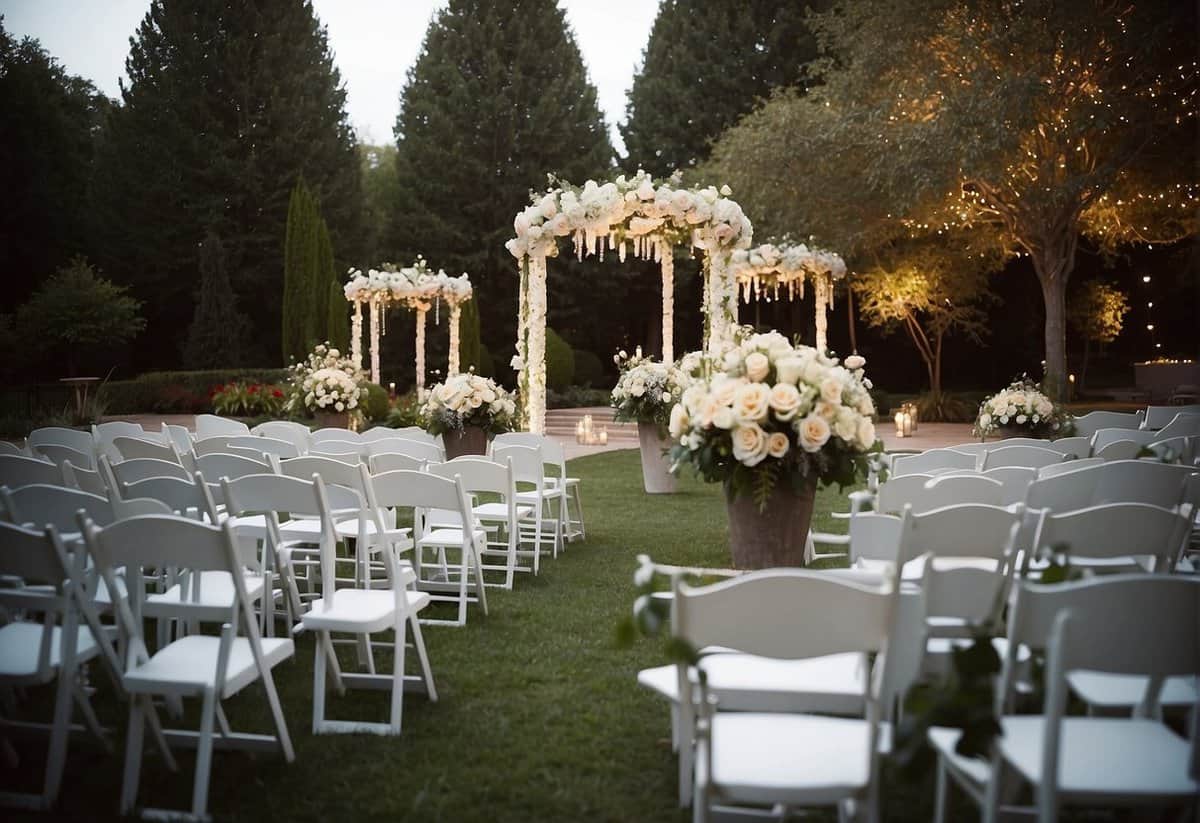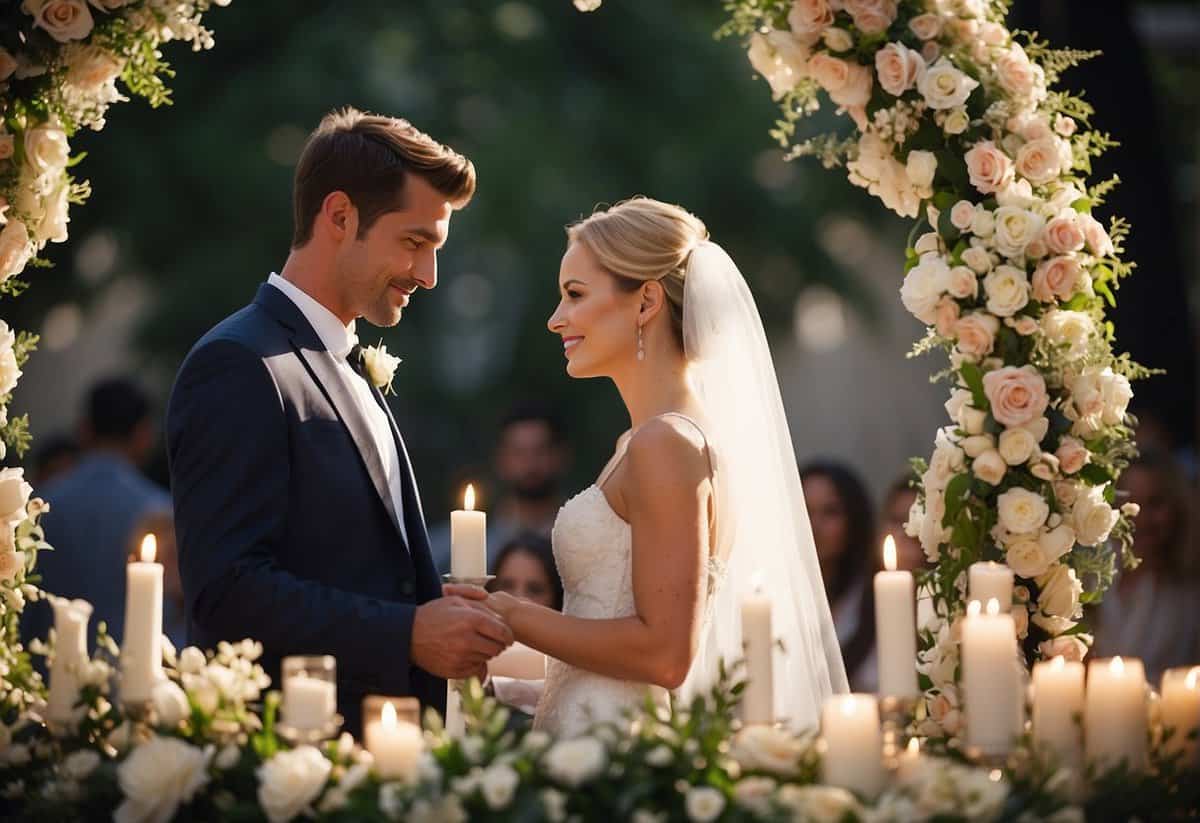Is a Wedding Only About the Bride and Groom? Exploring a Wider Celebration Perspective
Weddings have traditionally been events with a wide spectrum of interpretations and practices, yet at their core, they symbolize a personal commitment between two individuals, the bride and the groom. This day is often viewed as the culmination of months or years of relationship-building and planning, a sacred ceremony symbolizing the start of a shared journey. The narrative that weddings are solely for the bride and groom, however, forgets the ripple of significance the occasion carries for friends, family, and the larger community.

While the couple is the focal point, a wedding is a multifaceted event that extends beyond just two people. It involves intricate planning, from selecting a venue to deciding on the guest list, each choice reflecting a melding of individual tastes, cultural customs, and shared values. The day itself unfolds as an experience shared with loved ones, who witness and celebrate the couple’s commitment. The memories created resonate well beyond the ceremony, underscoring the wedding’s broader impact on everyone involved.
Key Takeaways
- Weddings symbolize a deep personal commitment and the start of a marital journey.
- Beyond the couple, the event’s planning and celebration involve the wider community.
- The significance of the wedding day extends into lasting memories for all attendees.
The Significance of the Bride and Groom

In a wedding, while you celebrate the union of two people, the spotlight revolves around the bride and groom. Their roles, traditions, and how they choose to personalize the ceremony are at the heart of the celebration.
Roles and Responsibilities
The bride and groom have a checklist of duties leading up to, and on, their wedding day. Your journey includes setting a budget, choosing a date, style, and wedding site—together. As a bride, you may also coordinate with your bridesmaids on dress selections and planning pre-wedding events. The groom, on his end, often selects his groomsmen and decides on the groom’s attire, aiming for a look that complements the day’s theme and your preferences.
Personalizing the Ceremony
Your wedding is uniquely yours, and personalizing the ceremony allows you to showcase your individual styles and stories. Use this opportunity to integrate personal vows, which an officiant can introduce during the ceremony. If you want to highlight your journey, you might choose a historic landmark that speaks to your shared interests for an intimate elopement.
Tracing Traditions
Traditions play a significant role in how your wedding is remembered and experienced. The exchange of wedding bands, a symbol of commitment and a tradition that dates back centuries, remains a pivotal ceremony moment. Knowing why a groom stands to the right of the bride can lend deeper meaning to your positioning at the altar. And while traditions are beautiful, remember, it’s okay to reinterpret them in ways that celebrate your unique bond.
Planning and Preparation

When you dive into wedding planning, it’s crucial to approach the process with clarity and organization. Your budget, guest list, and choice of vendors and services are the foundational elements that will shape your special day.
Budgeting for the Big Day
Establishing your budget is the first step in the wedding planning process. You need to determine how much you’re willing to spend overall—this will guide all your subsequent decisions. Break down your budget into categories like venue, catering, and attire. A helpful way to stay organized is using a spreadsheet to track each expense against your total budget.
Assembling the Guest List
Constructing the guest list can be both exciting and stressful. Begin by deciding on the size of your wedding, which should align with your budget and venue capacity. Create a list that includes family, friends, and colleagues, categorizing them as must-invites or potential guests. Remember, each guest adds to the cost, so refer back to your budget when making these decisions.
Selecting Vendors and Services
Choosing the right vendors and services for your wedding is essential. Start with the most significant tasks such as the venue, caterer, photographer, and music entertainment. Research and compare vendors thoroughly, reading reviews and asking for references. Once you’ve narrowed down your options, book their services well in advance to avoid last-minute stress. Consider attending wedding fairs or seeking recommendations from married friends for trusted vendors.
Remember, your wedding day is about you and your partner. It’s your story and your decisions will bring it to life. Keep communication open, share the workload, and most importantly, enjoy the journey to your big day.
The Wedding Day Experience

Your wedding day is not just a union of love but a symphony of carefully chosen elements that create an unforgettable experience. From the garments you wear to the split-second moments of joy, these details coalesce to form the narrative of your special day.
Ceremonial Elements
The heart of your wedding day is the ceremony itself, where vows are exchanged and commitments are made. Here, you’ll find tradition in the air as flowers line the aisle, leading to a moment when you and your partner tie the knot. A complete guide on groom responsibilities suggests punctuality as a key element, ensuring the ceremonial rhythm flows seamlessly.
Attire and Aesthetics
Just as a painter selects a palette, you choose the attire and aesthetics for your wedding. Suits and tuxedos are selected with precision, reflecting personal style and the formality of the event. Remarkably, decisions extend beyond the bride and groom, implicating the overall wedding roles and responsibilities, where each member’s appearance supports the day’s aesthetic.
- Bride: A white gown, often laced or beaded, paired with a complementary bouquet.
- Groom: A sharp tuxedo or tailored suit, perhaps with a vest or a distinctive tie.
- Wedding Party: Coordinated dresses and suits that echo the wedding’s color theme.
Memorable Moments
In a twinkling, singular moments become the memories that you’ll cherish. When you and your partner share your first dance, swaying to a tune that resonates with your journey, all eyes are on you. The cutting of the cake, a symbol of sweetness and shared life, followed by the heartfelt toasts from loved ones, capture the essence of celebration. Not to be overlooked is hiring a skilled photographer to immortalize your wedding photos, ensuring each smile and tear is preserved for years to come.
- First Dance: A magical moment that sets the tone for the rest of the celebration.
- Photographer: A professional capturing candid and posed moments throughout the day.
Beyond the Ceremony

After the vows are exchanged, your wedding journey continues with celebrations of the commitment you’ve just made, and then, a getaway to start your lives together.
Receptions and Celebrations
Following the ceremony, you’ll likely want to share your happiness with family and friends at a reception—a tradition that lets everyone bask in the joy of your nuptials. A reception can be a lavish party or a simple gathering, depending on what feels right for you. Here, you’ll enjoy food, music, and dances, making memories that last. In planning this part, remember to factor in the bills for the venue, catering, and entertainment, ensuring that your celebration aligns with your budget.
- Catering: Choose whether you’d like a sit-down dinner or a buffet.
- Entertainment: Decide on a live band or a DJ to set the mood.
- Thank-You Notes: Plan to send these post-event as a gracious gesture.
Commencing the Honeymoon
Embarking on your honeymoon marks the start of your shared life. Whether you opt for a private retreat or an adventurous excursion, this is your chance to relax and revel in the new chapter together. A honeymoon suite at a hotel might offer the perfect romantic escape, complete with champagne and a stunning view. During this special getaway, take time to appreciate each other’s company:
- Hotel Room: Seek out accommodations that provide a cozy and intimate atmosphere.
- Honeymoon: Choose a destination that reflects both of your interests and passions.
Frequently Asked Questions

In planning your special day, you may have numerous questions about the traditions and expectations of a wedding. Here are some specific answers to commonly asked questions related to a wedding being about just the bride and groom.
What are the essential elements that define a wedding?
A wedding typically encompasses the exchange of vows between the couple, a ceremonial aspect often presided over by an officiant, and the signing of a marriage certificate. These elements are central in legally and symbolically uniting the couple.
How do family dynamics typically play a role in wedding celebrations?
Family dynamics can influence various aspects of a wedding, from the guest list to the roles played during the ceremony. It’s common for family members to be involved in planning, providing support, and participating in traditional rituals.
What do you call a ceremony that involves only the bride and groom?
A ceremony with only the bride and groom is commonly referred to as an elopement. This intimate affair focuses solely on the union of the couple without any guests.
Can weddings be considered a celebration for the couple or the families involved?
Weddings are often a celebration of the couple and a union of their families. The extent to which family is involved varies, but typically both the couple’s and families’ joy and commitment are acknowledged during the celebration.
What are the various responsibilities of the bride and groom during their wedding?
The bride and groom are responsible for expressing their commitment through their vows, adhering to legal formalities, and often participating in planning and hosting the event; including making decisions on the ceremony and reception that reflect their shared values and tastes.
How do cultural differences impact the focus of wedding ceremonies?
Cultural differences can significantly impact the focus and practices within wedding ceremonies, with some emphasizing community and family involvement while others may focus more on the individual couple. These variations can include different rituals, attire, and celebratory customs.

